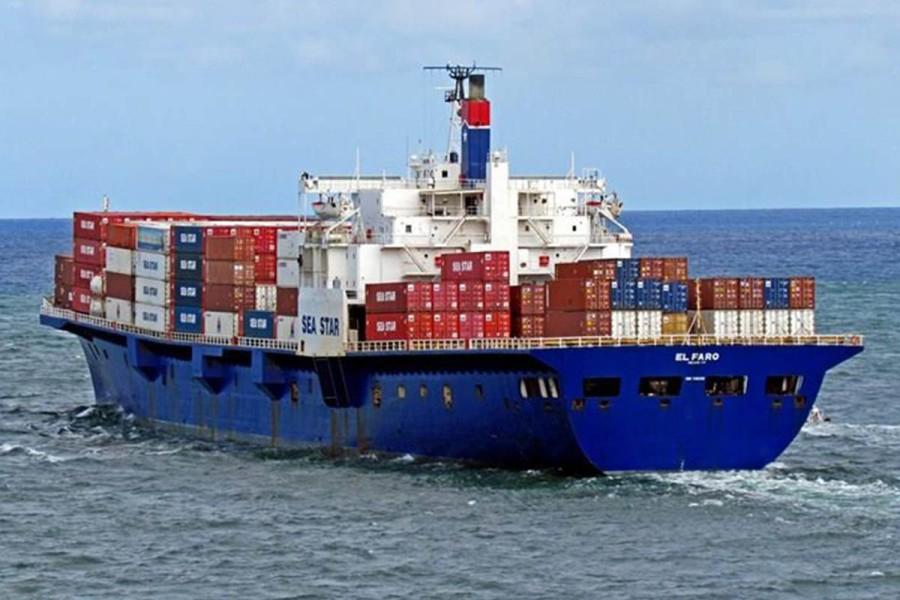Cargo ship “El Faro” disappears amidst hurricane
October 15, 2015
An American cargo ship named “El Faro” disappeared after losing propulsion near the Bahamas, trapping the ship in the path of Hurricane Joaquin on Oct. 1. The ship departed from Jacksonville, Fla., on Tuesday, Sept. 29, and was en route to San Juan, Puerto Rico, 1,300 miles away. The ship’s 33-man crew consisted of 28 Americans and five Polish nationals, all of whom are presumed dead.
The El Faro was first commissioned in the Ford Administration in 1975. In comparison, the average age of a freight ship worldwide is around 11 years, a mere fraction of El Faro’s service time. Totes Maritime, the company that operated El Faro, states that despite its age, the ship met all standards and certifications set by the American Bureau of Shipping. However, according to former crew members, the El Faro had structural problems and was maintained at minimal costs.
Freshman Mayur Popuri believes that if the ship met standards, then it was seaworthy.
“I think if it met the standards, within certain guidelines, then the voyage was justified,” Popuri said. “40 years old doesn’t mean the ship hasn’t been touched in 40 years.”
During El Faro’s last call to the Coast Guard, the crew reported that the ship lost propulsion and was taking on water through a broken hatch. The captain announced that it had consequently taken on a 15 degree tilt. Shortly after the call, the ship lost all power. With the engines down, the ship and its crew were stuck just 15 miles away from the epicenter of Hurricane Joaquin, battered by winds up to 130 mph and waves as tall as buildings. Authorities are still investigating why the ship never sent out a distress signal.
According to Totes Maritime, the captain of the El Faro, Michael Davidson was a highly experienced mariner. He was reportedly given the decision to turn back, but proceeded because he believed he could outrun the storm. His plan fell apart after the ship lost propulsion, trapping him and his crew in the storm. Totes Maritime has been criticized for failing to turn the ship around, believing Davidson was well-able to deal with the storm.
Senior Abby Cohen agrees that Totes Maritime shouldn’t have let the ship proceed into dangerous conditions.
“I feel like they probably should have stopped them,” Cohen said. “It’s definitely not good for their company, and it was obviously unsafe for their crew members.”
Hurricane Joaquin began forming as early as Sept. 18 in the Atlantic Ocean. Over the course of the next few days, the storm would gain momentum, officially becoming a tropical storm by Sept. 29. The storm was declared a hurricane on Sept. 30, and a major hurricane by Oct. 1. By the time El Faro reached the wake of Hurricane Joaquin, the storm was already a category 3 hurricane. Hurricane Joaquin peaked with winds up to 155 mph, short of reaching category 5. It dissipated six days after the disappearance of the El Faro on Oct. 7.
After six days of intensive searching, the Coast Guard called off the search for survivors on Oct. 7. They confirmed that the ship had sunk on Oct. 5, in waters as deep as 15,000 feet in the Atlantic Ocean. The Navy will begin to search for the wreckage on the seabed using sonar and other methods in the following weeks. So far, rescuers have discovered a debris field and an unidentified body in a survival suit near the last known location of the ship, near Crooked Island of the southeastern Bahamas.
29-year-old Derek Davis, son of merchant mariner Larry Davis who was lost on the El Faro returned to his hometown to mourn the loss of his father. In an interview by the Wall Street Journal, Davis said that he hopes the sunken ship will be recovered so he can understand what went wrong.
“It would be nice to have that closure, but at the same time, he’s deep down in the ocean,” Davis said. “The long list of mariners who have given themselves to the sea, and been lost at sea – I’m not ashamed to add my father to that list.”






Mayur • Oct 20, 2015 at 3:37 pm
Wow that Mayur guy seems really smart!!!